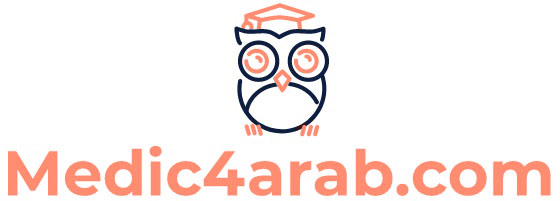Clinical Immunology: Principles and Practice 2018
| Keep abreast of the latest advances in this complex field with the 5th Edition of Clinical Immunology: Principles and Practice. This substantially revised edition by Drs. Robert R. Rich, Thomas A. Fleisher, William T. Shearer, Harry W. Schroeder, Jr., Anthony J. Frew, and Cornelia M. Weyand, offers authoritative guidance from some of the most respected global leaders in immunology, helping you navigate today’s latest knowledge and evidence-based practices that result in improved patient care. This trusted resource features sweeping content updates, rewritten chapters, a highly clinical perspective, and an easy-to-use organization designed to enhance your diagnosis and management skills in daily practice. Key Features User-friendly format features color-coded boxes highlighting critical information on Key Concepts, Clinical Pearls, Clinical Relevance, and Therapeutic Principles. | |||
Table of contents : Section 1 - Principles of Immune Response View less > 1. The Human Immune Response 2. Organization of the Immune System 3. Innate Immunity 4. Antigen Receptor Genes, Gene Products, and Co-Receptors 5. The Major Histocompatibility Complex 6. Antigens and Antigen Presentation 7. B-Cell Development and Differentiation 8. T-Cell Development 9. Cytokines and Cytokine Receptors 10. Chemokines and Chemokine Receptors 11. Lymphocyte Adhesion and Trafficking 12. T-Cell Activation and Tolerance 13. Regulated Cell Death 14. The Microbiota in Immunity and Inflammation Section 2 - Host Defense Mechanisms and Inflammation View less > 15. Immunoglobulin Function 16. Helper T-Cell Subsets and Control of the Inflammatory Response 17. Cytotoxic T Lymphocytes and Natural Killer Cells 18. Regulatory Immune Cells 19. Host Defenses in the Skin 20. Host Defenses at Mucosal Surfaces 21. Complement in Host Deficiencies And Diseases 22. Phagocyte Deficiencies 23. Mast Cells, Basophils, and Mastocytosis 24. Eosinophils and Eosinophilia Section 3 - Host Defenses to Infectious Agents View less > 25. Host Defenses to Viruses 26. Host Defenses to Intracellular Bacteria 27. Host Defenses to Extracellular Bacteria 28. Host Defenses to Spirochetes 29. Host Defenses to Fungi 30. Host Defenses to Protozoa 31. Host Defenses to Helminths Section 4 - Immunologic Deficiencies View less > 32. Approach to the Evaluation of the Immunodeficient Patient 33. Human Genomics in Immunology 34. Primary Antibody Deficiencies 35. Primary T-cell Immunodeficiencies 36. Immunodeficiencies at the Interface of Innate and Adaptive Immunity 37. Infections in the Immunocompromised Host 38. Immune Deficiencies at the Extremes of Age 39. HIV Infection and Acquired Immunodeficiency Syndrome 40. Autoantibody Mediated Phenocopies of Primary Immunodeficiency Diseases Section 5 - Allergic Diseases View less > 41. Immunological Mechanisms of Airway Diseases and Pathways to Therapy 42. Urticaria, Angioedema, and Anaphylaxis 43. Allergic Reactions to Stinging and Biting Insects 44. Atopic and Contact Dermatitis 45. Food Allergy 46. Eosinophil-Associated Gastrointestinal Disorders 47. Allergic Disorders of the Eye 48. Drug Hypersensitivity 49. Occupational Respiratory Allergies Section 6 - Systemic Immune Diseases View less > 50. Mechanisms of Autoimmunity 51. Systemic Lupus Erythematosus 52. Rheumatoid Arthritis 53. Juvenile Idiopathic Arthritis 54. Sjögren’s Syndrome 55. Scleroderma-Systemic Sclerosis 56. Inflammatory Muscle Diseases 57. Spondyloarthritis 58. Small and Medium Vessel Primary Vasculitis 59. Large-Vessel Vasculitides 60. Systemic Autoinflammatory Syndromes 61. Antiphospholipid Syndrome Section 7 - Organ-Specific Inflammatory Disease View less > 62. Immunohematologic Disorders 63. Bullous Diseases of the Skin and Mucous Membranes 64. Immunology of Psoriasis 65. Myasthenia Gravis 66. Multiple Sclerosis 67. Autoimmune Peripheral Neuropathies 68. Immunologic Renal Diseases 69. Inflammation and Atherothrombosis 70. Autoimmune Thyroid Diseases 71. Diabetes and Related Autoimmune Diseases 72. Immunologic Lung Diseases 73. Sarcoidosis 74. Immunologic Ocular Disease 75. Immunologic Diseases of the Gastrointestinal Tract 76. Inflammatory Hepatobiliary Diseases Section 8 - Immunology of Neoplasia View less > 77. Tumor Immunotherapy 78. Lymphoid Leukemias 79. Lymphomas 80. Monoclonal Gammopathies Section 9 - Transplantation View less > 81. Concepts and Challenges in Organ Transplantation: Rejection, Immunosuppression, and Tolerance 82. Immune Reconstitution Therapy for Immunodeficiency 83. Hematopoietic Stem Cell Transplantation for Malignant Diseases Section 10 - Prevention and Therapy of Immunologic Diseases View less > 84. Immunoglobulin Therapy: Replacement and Immunomodulation 85. Gene Therapy 86. Glucocorticoids 87. Immunomodulating Pharmaceuticals 88. Protein Kinase Antagonists as Therapeutic Agents for Immunological and Inflammatory Disorders 89. Biological Modifiers of Inflammation 90. Vaccines 91. Immunotherapy of Allergic Disease Section 11 - Diagnostic Immunology View less > 92. Flow Cytometry 93. Assessment of Functional Immune Responses 94. Assessment of Neutrophil Function 95. Assessment of Human Allergic Diseases 96. Molecular Methods Appendices View less > 97. A1: Selected CD Molecules and their Characteristics 98. A2: Laboratory Reference Values 99. A3: Vaccine Schedules |
















